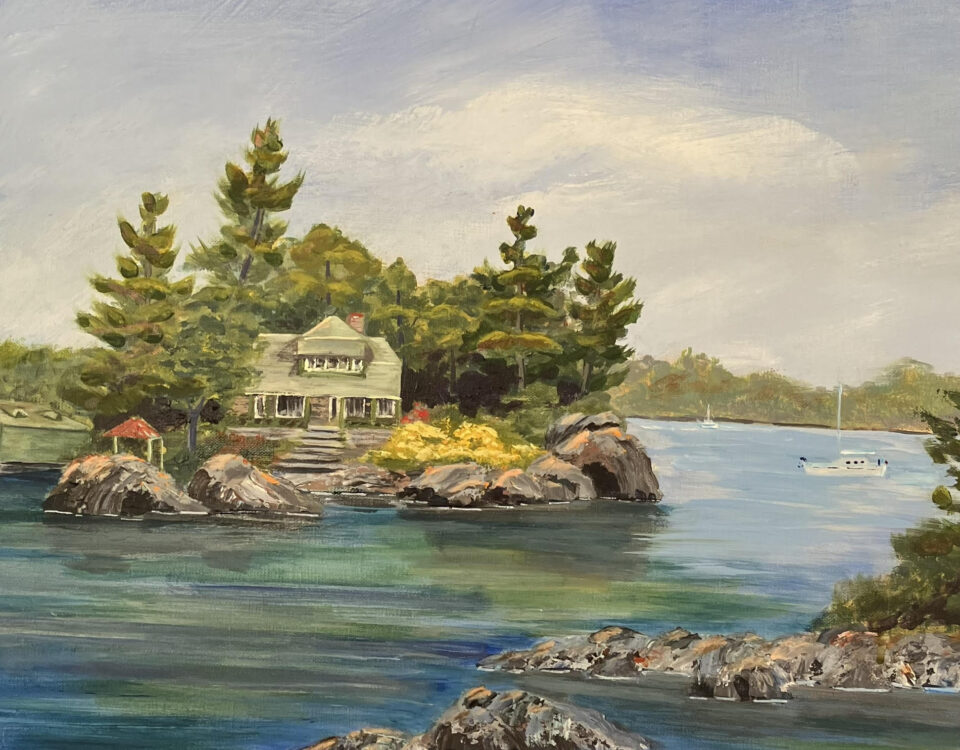
How does poetry compare to fishing? In a recent interview with Canadian poet Jason Heroux, Open Endings, Honest Landscapes, and Surrealism, part of a series known as “What Moves Us,” Heroux discusses his style and process of writing, accessibility of poetry and his poetic inspirations. His works are eclectic leaving the reader both surprised and delighted.
Heroux describes it as surrealism and names James Tate and Russell Edson as a couple of his influences. He expresses that though his poems delve into surrealism blending “innocence and dark humour”, they are accessible with everyday words and familiar images. It’s the combination of these that makes the final scenes or ideas pop. He says, “It’s the unexpected element that I really respond to when I read a poem and what I try to do in the works that I create. I want to surprise myself when I write a poem.”
He doesn’t take a lot of space to do this either. You will find some longer poems on the City of Kingston’s website from the time he was the appointed Poet Laureate from 2019 to 2022. Others though, like those in his book, Hard Work Cheering Up Sad Machines are only a few poignant lines long. Heroux’s surrealist poems are like those jelly beans that don’t taste like watermelon, cherry and grape but instead like popcorn, earwax, and crushed crickets.
One of the most interesting sections of the conversation was when Heroux discusses how he starts and ends his poems. He described his process with two metaphors, one related to driving and one related to getting a haircut.
Many poets look consciously or subconsciously for a way to tie up the poem with a hard-hitting or catchy final line; looking for a way to end the poem with a “click.” Now, Heroux has freed himself from that pressure and his endings are more discoveries than final destinations. He relates this to getting a haircut – you have a poem, you trim the ending a bit and it adds that extra bounce sometimes.
Even the beginnings of Heroux’s poems can be uncertain, he shares. What helps him get moving is latching onto something in the present moment, often, he says, it’s his environment- the weather, a leaf, a raindrop. He never really knows where the poem is going – where the poet wants it to go, and where the poem needs to go can be two different things.
Heroux describes writing like fishing: you reel something up, maybe it’s something exciting or sturdy that you keep or maybe it’s something that you throw back, and then your line goes back into the water.
If you have not read Heroux’s work before, please make your way to a local bookstore and look for one of his works. Guaranteed, at least one line from one poem will make you chuckle, tilt your head to the side, or scrunch your face before you read it again.
Interested in what Leornard Nemoy has to offer poetry? Tune into the whole interview titled Open Endings, Honest Landscapes, and Surrealism with Jason Heroux on the YouTube Channel, Abena Green. While you’re there, discover other interviews from the “What Moves Us” series with poets, singers, actors and (soon) dancers.
Jason Heroux is the author of four books of poetry: Memoirs of an Alias (2004); Emergency Hallelujah (2008); Natural Capital (2012) and Hard Work Cheering Up Sad Machines (2016). His most recent book is the novel Amusement Park of Constant Sorrow (Mansfield Press, 2018). Translated into French, Italian, and Arabic, his poetry has been featured in several anthologies, including Best Canadian Poetry in English 2008, 2011 and 2016, and has appeared in magazines and journals in Canada, the U.S, Belgium, France, and Italy. He was born in Montreal, and has lived in Kingston since 1990.


